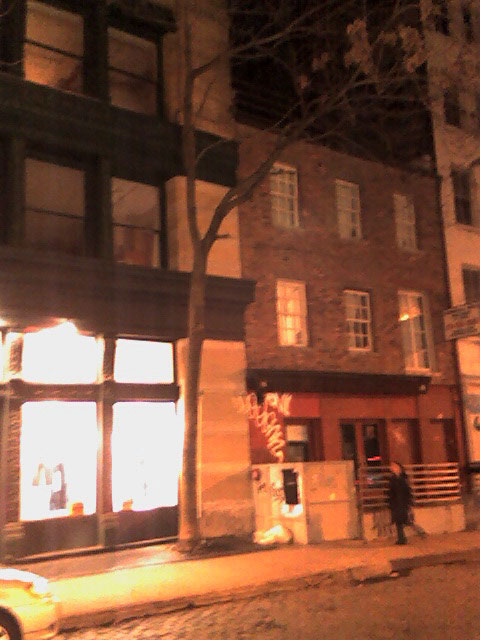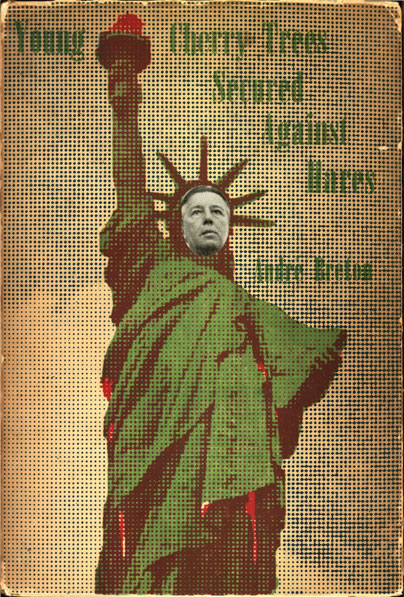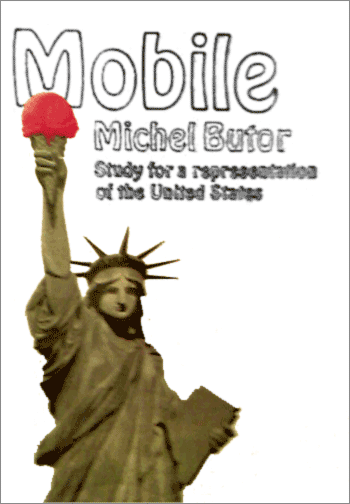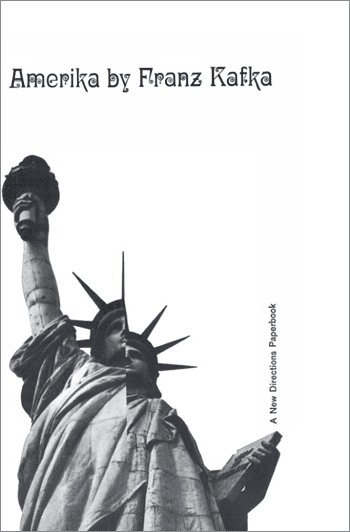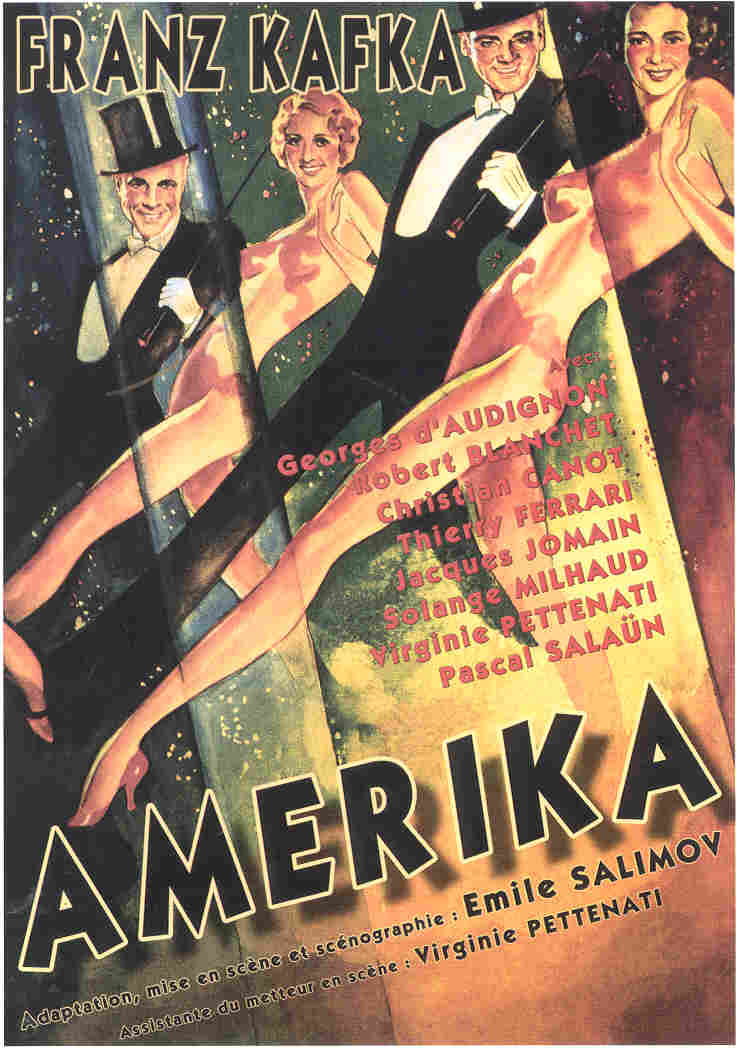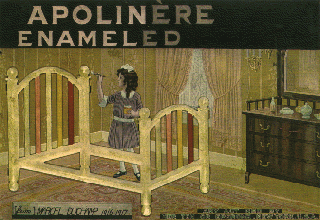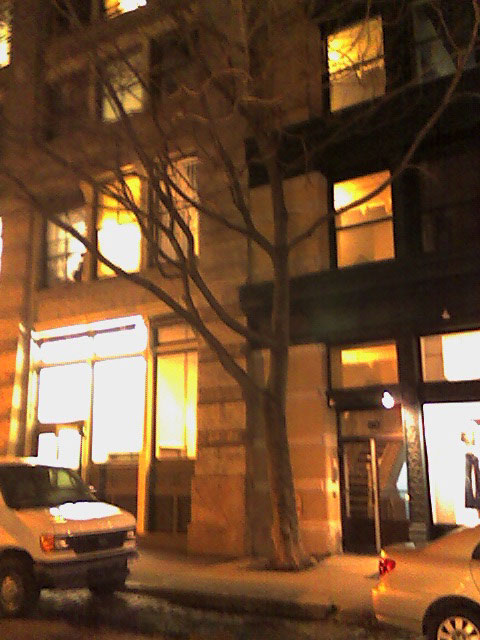
One night I was sleeping in the basement of 80 Wooster Street. I think it was the late Fall of 1967. George comes in, says, “Come help. I got these trees here, I have to plant them.”
“What, at this hour of night?” I hate to get up at night. But I did, and yes, he had these shabby trees lying on the sidewalk.
“I stole them from the parking lot on West Broadway,” he told me proudly, laughing. “They were digging up the whole place, with tractors, and I asked them to give me a couple of the trees, and they said no! So I waited until the night, and I took them, you see? We have to plant them now, it’s against the law to plant trees in SoHo.
The next day, or a day later, some city officials showed up. “No trees are permitted here,” they told me. “You’ll have to get rid of them.”
I go down to the basement, to George. He was making his Fluxus boxes or something, and he says, “Tell them if they don’t like our trees they can pull them out.” So I go back to the city officials, and I say: “No, George is not going to do it. He says you have to do it. And he wants me to take some pictures when you do it.”
The city people looked at me, then at each other, turned around, and we never saw them again.
But the trees grew and prospered. Big, big trees they are now, happy trees, the only trees on Wooster Street.
(Jonas Mekas, letter to Emmett Williams, 1993, in Mr. Fluxus: a collective portrait of George Maciunas 1931–1978)
